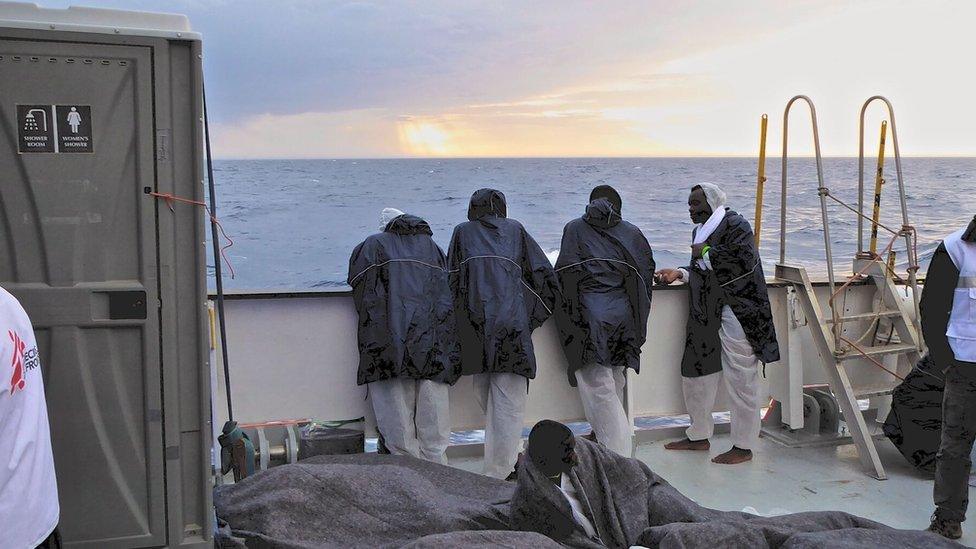Dozens of migrants drown off Libya
- Published
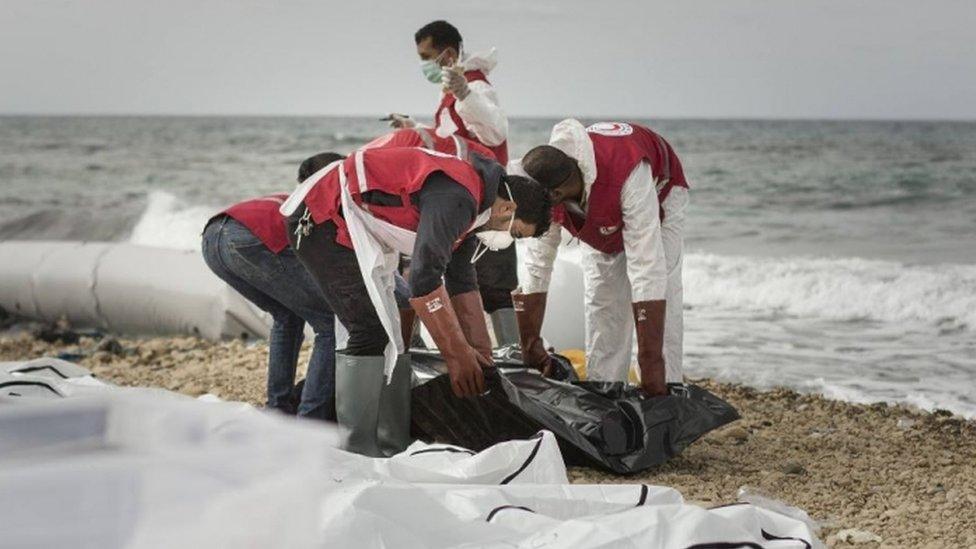
Over 100 migrants are feared to have drowned while trying to cross the sea between Libya and Italy
The bodies of 87 African migrants have washed ashore in the Libyan city of Zawiya, in the latest drowning tragedy to hit the region.
It is believed they were trying to cross the Mediterranean to Italy.
Migrant deaths have risen to record levels along this smuggling route in recent months.
A torn rubber boat was found nearby, and it is feared more bodies may surface as such vessels usually carry up to 120 people.
Some of those who died are believed to be children.
A spokesman for the Libyan Red Crescent - the country's Red Cross - said the bodies were retrieved by its workers.
Mohammed al-Misrati said local authorities would take the bodies to a cemetery for unidentified people in the Libyan capital, Tripoli.
The Red Crescent posted photographs on its Twitter account showing dozens of body bags along the shore.
The UN's migration agency, the International Organisation for Migration, said , externalthe boat that sank had left Libya on Saturday with 110 people on board.
At least 5,000 people drowned last year while trying to reach Europe via the Mediterranean.
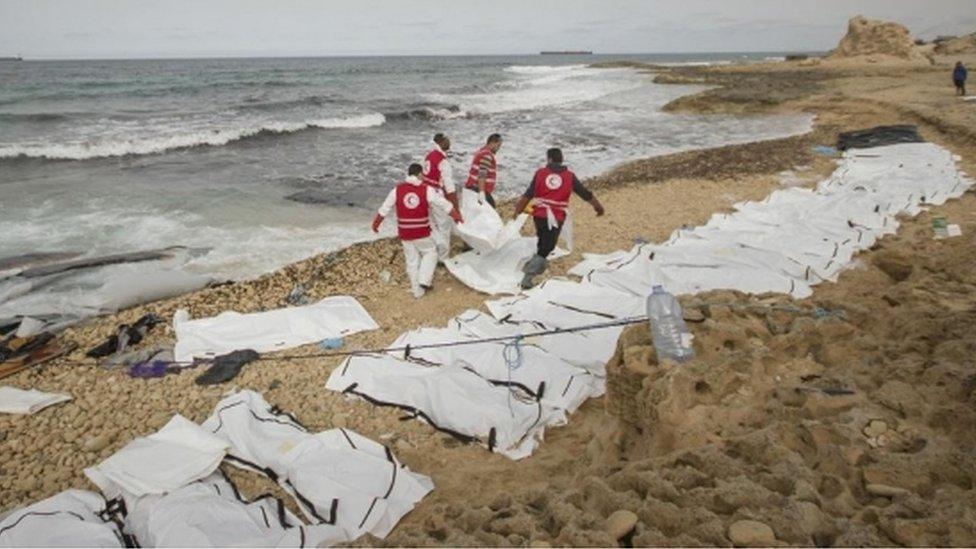
The Red Crescent said the dead would be buried in a cemetery for unidentified people in Tripoli, Libya
Libyan coast guard spokesman Ayoub Gassim said over 500 migrants were rescued at sea on Friday and Saturday near the city of Sabratha, to the west of Zawiya.
The boats were between five and seven miles (8-11km) from the coast of Libya.
Mr Gassim said the smugglers were now using larger rubber boats in order to pack more migrants in, some carrying up to 180 people.
The boats are weak, and loading them so heavily dramatically raises the risk of sinking.
"We are seeing the new boats, which are not equipped with anything, but they carry more people," he said.
"This is going to be even more disastrous to the migrants."
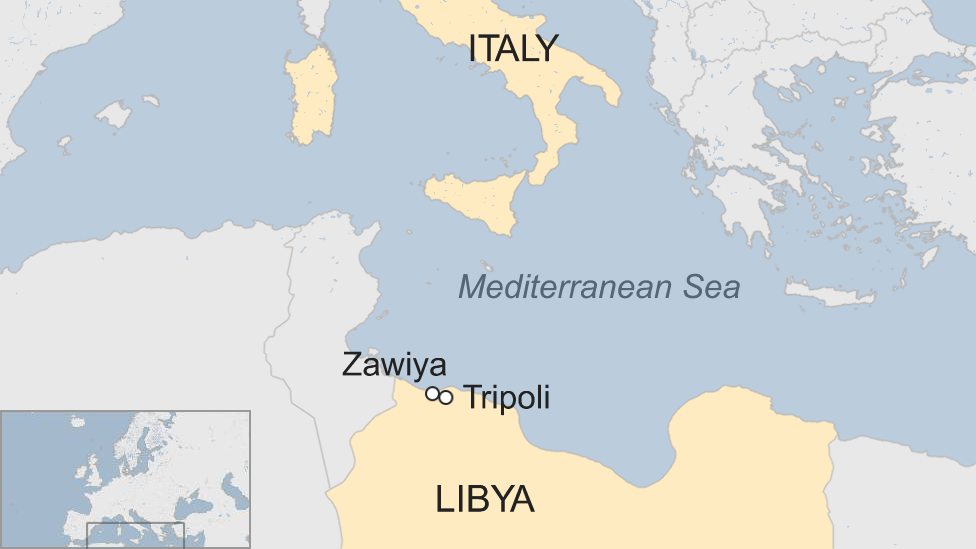
A note on terminology: The BBC uses the term migrant to refer to all people on the move who have yet to complete the legal process of claiming asylum. This group includes people fleeing war-torn countries such as Syria, who are likely to be granted refugee status, as well as people who are seeking jobs and better lives, who governments are likely to rule are economic migrants.
- Published3 February 2017
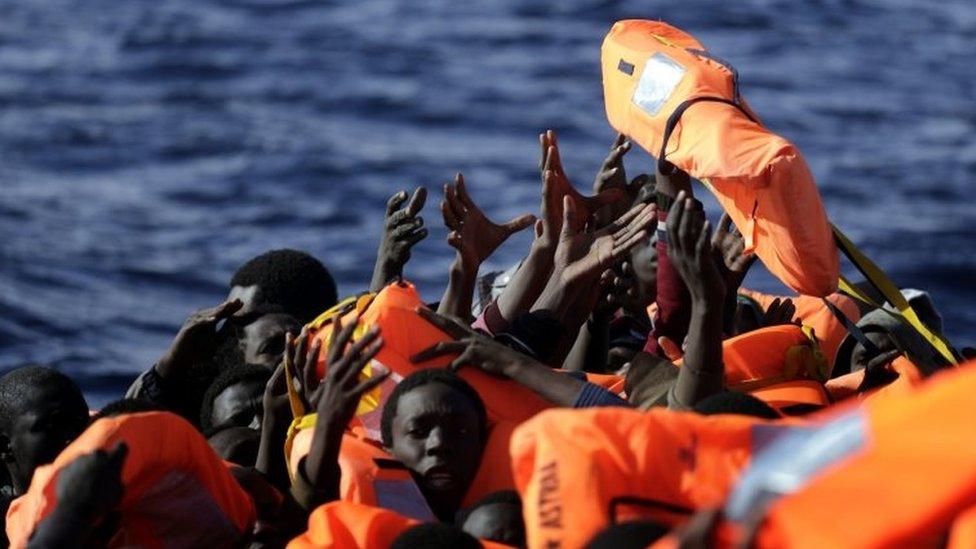
- Published1 February 2017
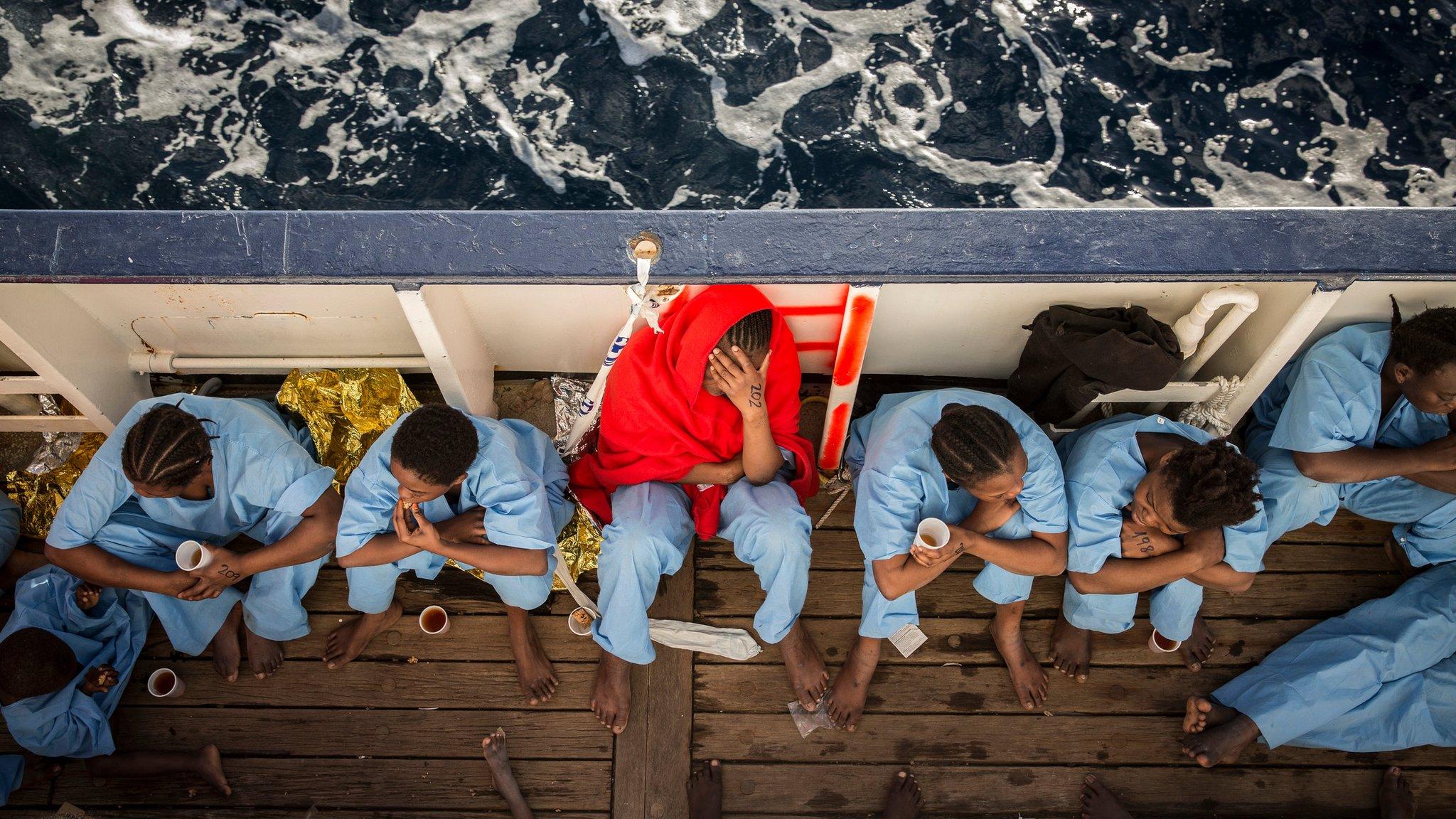
- Published15 January 2017
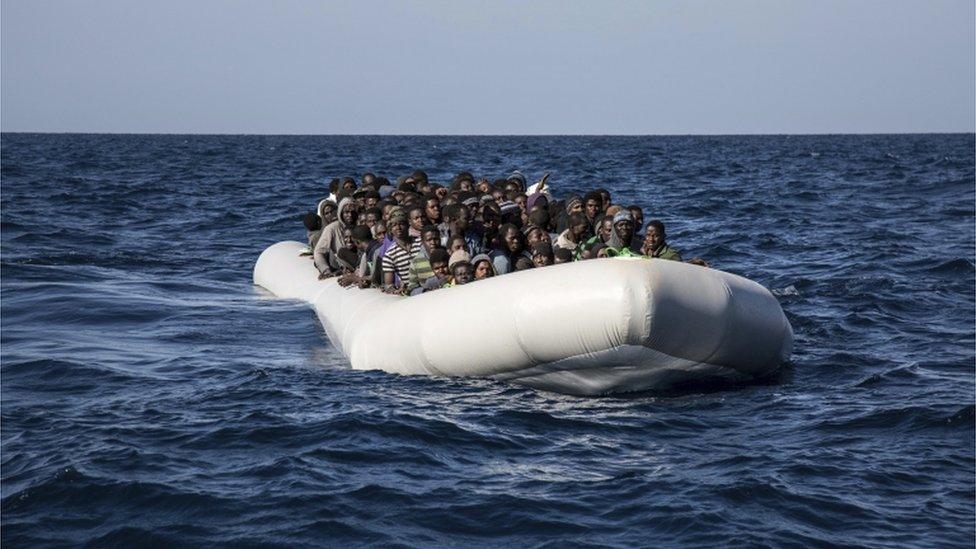
- Published23 December 2016
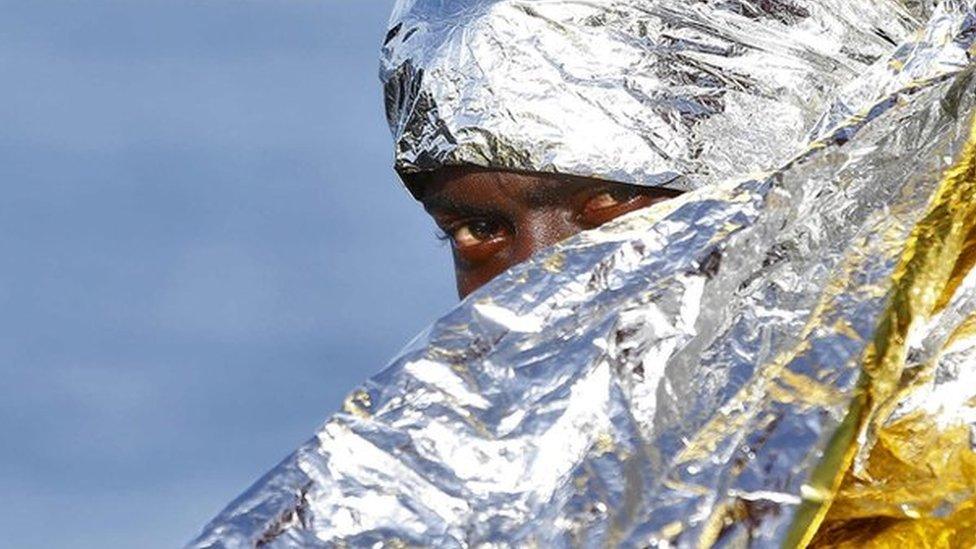
- Published29 November 2016
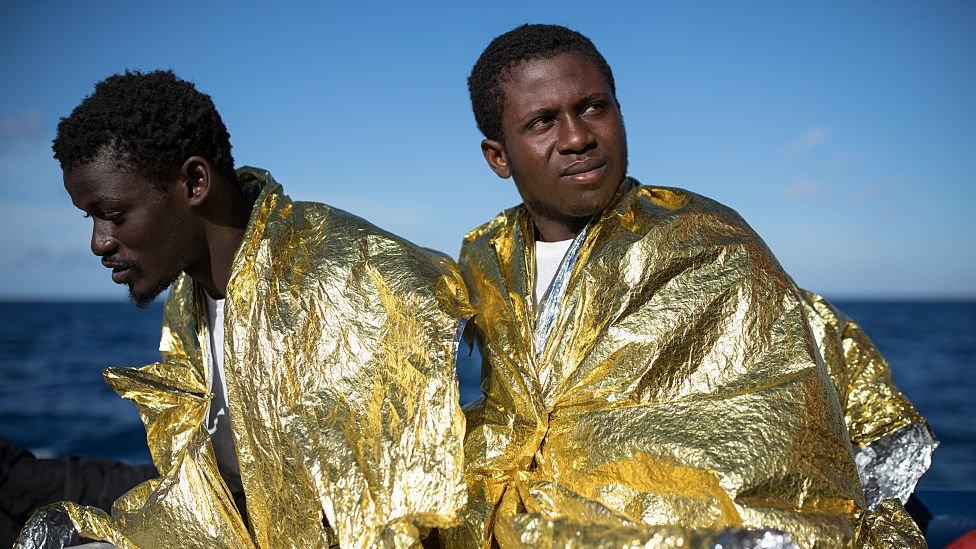
- Published4 October 2016
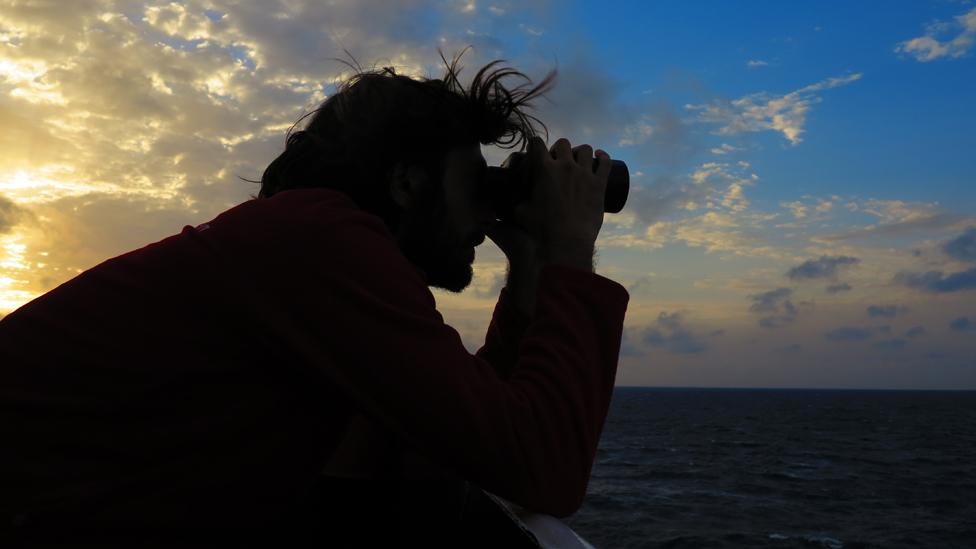
- Published17 May 2016
